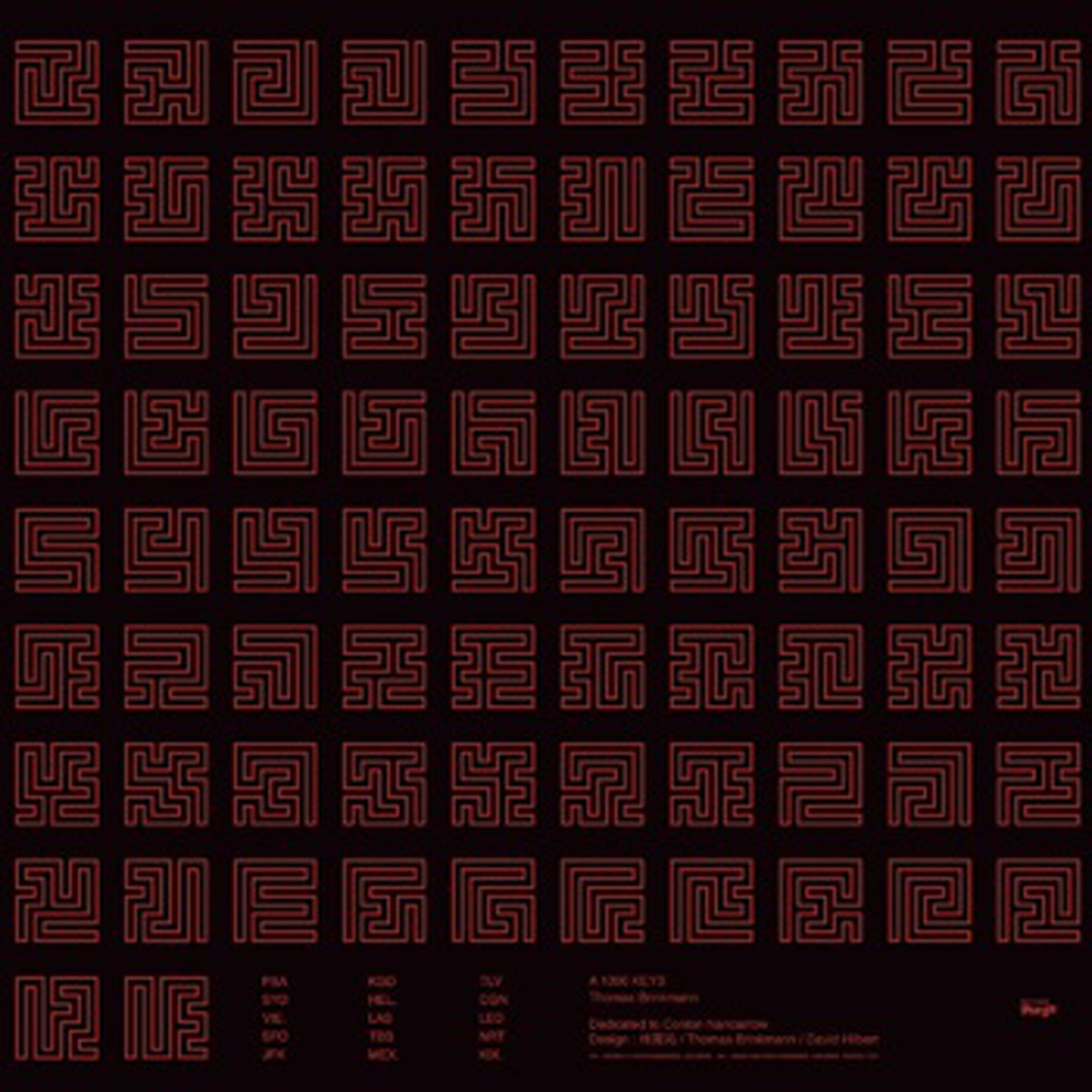
Lamentably, I have not been following Thomas Brinkmann’s career at all until now, as I had unfairly assumed that he was exclusively a techno producer and probably not of much interest to a connoisseur of the fringes like me.  As it turns out, however, his releases for Editions Mego are quite radically experimental and very much to my taste, particularly this one.  A 1000 Keys has its roots in an intriguing and ambitious premise: Brinkmann basically converted the sound of a grand piano into binary code as a "fatal homage to minimalism and a consequent denial of virtuosity and the idea of creative genius."  Naturally, that claim was more than enough to pique my interest, but I would not have stuck around for very long if that concept had not translated into such a gloriously visceral and dissonant tour de force.  Brinkmann decisively delivers on his bold promise, taking the more chromatic and violent strains of modern classical piano composition to an impressively inhuman extreme.
In keeping with his ballsy and quixotic rejection of all warmth and humanity, Brinkmann named each of these 18 pieces using three-letter airport codes.  His reasoning was that airports are "non-places that establish their own space-and-time continuum, while lacking individual identity and history."  Also, they are "sterile passages for anonymous, objectified masses."  I definitely like the way Brinkmann thinks.  Unsurprisingly, the corresponding music is similarly anonymous and lacking individual distinctions, turning something that would normally be a flaw into a perverse virtue of sorts.  There is nothing resembling a conventional melody anywhere on 1000 Keys and Brinkmann does not expression much interest in differentiating the pieces with significant rhythmic or dynamic variations.  He even seems content to mostly restrict his activities to the rumbling lower registers.  What he offers instead, however, is an unrelenting onslaught of jagged, percussive dissonance.  Occasionally, he changes the formula a bit with something like a deep, buzzing drone ("TLV"); a scratching and popping rhythm ("YWG"); or an occasional brief interlude of gently burbling synth-like tones ("SFO" and "HEL"), but the overall aesthetic is very clearly one of nerve-jangling punishment and harsh chromaticism.
Aside from the impressive and maniacal show of force, I was most struck by the pieces where Brinkmann digitally obliterates the piano-like elements so completely that his grand piano sounds like crunching industrial machinery, as he does with the relentless and crushing locked-groove of "CGN" and the grinding closer "KIX."  Neither piece would sound out of place on a noise album.  Nor would the jagged, disorienting, and dissonant arpeggios of "KGD" sound all that out of place on a Morton Feldman album…or at least they would not if they were played with an uncharacteristic degree of violence.  For the most part, however, Brinkmann's pieces remind me favorably of Pierre Boulez’s more confrontational work, but played with an unfeasible number of fingers and very much fixated on the gut-level power of the churning lower register.  While those differences are admittedly significant on Brinkmann's side of the equation, they do not matter all that much on my end.  Aside from the two palette-cleansing synth-like interludes, listening to 1000 Keys is basically like being attacked for 70 minutes or so: the differences between songs can seem very trivial as the cumulative effect adds up.  No one cares about the nuances that separate being hit with a bat versus being hit with a hammer.  Both hurt.  The same is true of punishing repetition, ugly percussive chords, and roiling chromatic runs in the lower registers.
Perversely, 1000 Keys greatest faults can also be seen as thematically pure attributes.  Without question, this is a very single-minded and one-dimensional album and it stretches out for two LPs.  Listening to the entire album is exhausting.  However, that sameness and unrelenting density also gives the album a monolithic power that effectively emphasizes Brinkmann's intended statement.  Another possible critique is that Brinkmann's "denial of virtuosity and the idea of creative genius" is literally just that: a denial, rather than any kind of replacement.  Post-1000 Keys, I am still more than happy to seek out both virtuosity and genius, but Brinkmann at least showed that the alternative can offer quite an impressively bludgeoning and absorbing spectacle.  Also, I think he definitely pushed the envelope a bit regarding the piano’s range of expression.  Admittedly, I wish 1000 Keys showed a bit more depth and variety compositionally, but that is probably beside the point and possibly even antithetical to what Brinkmann was trying to do here.  These are not brilliant compositions, but they are fascinating experiments and great art.  Thomas Brinkmann basically took one of the greatest symbols of Art and Genius (the grand piano) and weaponized it.  More importantly, he crafted an album ferocious and uncompromising enough to make me care.  A 1000 Keys is a seriously heavy album.
 
 
Read More

